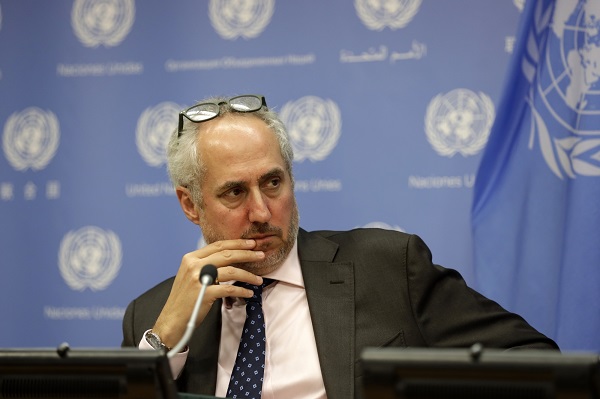United Nations, (Samajweekly) Aid arrivals are increasing in Lebanon as the United Nations continues its assessment of Beirut’s emergency needs following last week’s massive explosion, a UN spokesman said.
“A rapid assessment of the 55 primary health centers in the blast areas shows that some 35 per cent sustained moderate to severe damage,” said Stephane Dujarric, spokesman for UN Secretary-General Antonio Guterres, Xinhua news agency reported on Tuesday.
The World Health Organization (WHO) is supporting the Lebanese Health Ministry in a detailed assessment of the damage to and functioning of the health facilities in Beirut, Dujarric said. In coordination with Lebanese authorities and the Lebanese Red Cross, a rapid shelter assessment has identified districts close to the blast site in the port as priority districts.
The WHO reports that an 18-ton shipment of personal protective equipment landed in Beirut Tuesday.
Damage to the port could also worsen problems in providing food to Lebanon.
David Beasley, executive director of the World Food Programme (WFP), is in Lebanon assessing needs following the August 4 blast.
Immediately after the explosion, the WFP allocated food parcels for 5,000 highly vulnerable households and is preparing to scale up as needed, said Dujarric.
The UN Children’s Fund (UNICEF) reports that the education assessment shows some 20 technical schools have been damaged. Providing precautionary tetanus shots for the injured is among UNICEF’s priorities, said the spokesman.
The fund-raising conference on Sunday, chaired by France and the United Nations, has so far received more than US $290 million in pledges, he said.
The UN special coordinator for Lebanon, Jan Kubis, and Undersecretary-General for Peace Operations Jean-Pierre Lacroix briefed the Security Council on Lebanon in a closed session on Tuesday. Lacroix said the UN peacekeeping mission in Lebanon, known as UNIFIL, continues to work in close coordination with the Lebanese armed forces. It stands ready to assist the Lebanese forces and the Lebanese people, said Dujarric.









